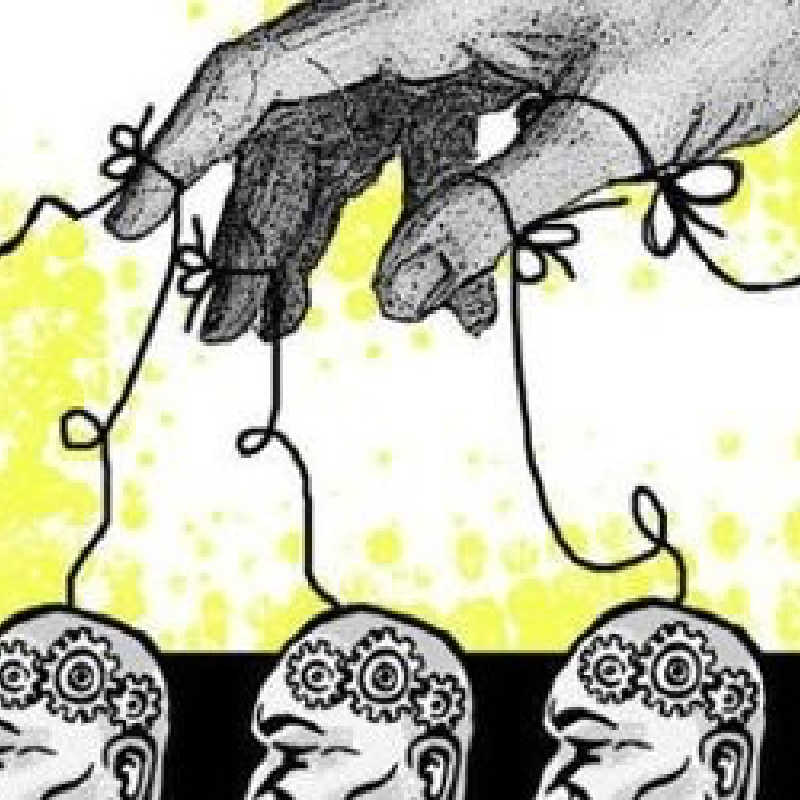
Understanding Totalitarianism | How To Escape A Totalitarian Government
Being able to spot a totalitarian government on the rise is tricky nowadays.
Historically, totalitarianism in our minds is led by a man, with a silly mustache, or possibly an oil rich dictator. Each has had their strategies and how they have been able to gain the power they had.
Through this lesson I hope to help people understand that while it may not always be presented as it has in the past, a totalitarian government could very well happen if we are all not careful in whom we appoint as officials and how we act emotionally rather than analytically.
Let's begin by going over and understanding what is totalitarianism?
Totalitarianism is a form of government characterized by centralized control over every aspect of public and private life, often achieved through an authoritarian regime led by a single political party or leader.
Understanding totalitarianism involves grasping its key features, historical contexts, and its impact on society and individuals. Let's continue..
Centralized Authority:

Totalitarian regimes concentrate power in the hands of a single leader or ruling party, often with little to no checks and balances. This authority extends to all aspects of governance, including political, economic, social, and cultural domains.
Ideological Dictatorship:

Totalitarian governments typically adhere to a rigid ideology or set of beliefs that serve as the basis for governance. This ideology is often propagated through propaganda, indoctrination, and censorship, shaping public opinion and justifying the regime's actions.
Mass Mobilization:

Totalitarian regimes seek to mobilize the entire population to support the state's goals and ideology. This may involve mass rallies, propaganda campaigns, youth organizations, and surveillance systems to monitor and control citizens' behavior.
State Control of Information:

Totalitarian governments tightly control the flow of information and suppress dissenting voices. This can include censorship of media, restrictions on free speech and assembly, and the propagation of state-sponsored propaganda to manipulate public opinion.
Violence and Repression:

Totalitarian regimes often use violence, intimidation, and repression to maintain control and suppress opposition. This can include arbitrary arrests, imprisonment, torture, and even state-sponsored terrorism to instill fear and deter dissent.
State Surveillance:

Totalitarian governments employ extensive surveillance systems to monitor the activities and behaviors of citizens. This can range from physical surveillance by secret police forces to modern technologies such as electronic surveillance, internet monitoring, and social media tracking.
Personality Cult:

Totalitarian leaders often cultivate a cult of personality, portraying themselves as infallible and omnipotent figures. This cult of personality serves to legitimize their rule, foster loyalty among supporters, and discourage dissent.
Total Control Over Society:

Totalitarian regimes seek to regulate and control every aspect of society, including education, religion, the economy, and personal life. This can result in the suppression of individual freedoms, creativity, and diversity, as conformity to the state's ideology is prioritized.
Isolation and Hostility to Outsiders:

Totalitarian regimes often adopt an isolationist stance, viewing external influences and foreign ideas as threats to their authority. This can lead to closed borders, restricted travel, and hostile relations with other countries.
Historical Examples: Historical examples of totalitarian regimes include Nazi Germany under Adolf Hitler, Stalinist Russia under Joseph Stalin, Maoist China under Mao Zedong, and North Korea under the Kim dynasty.
Escaping from a totalitarian government can be a complex and dangerous undertaking, depending on the severity of repression, surveillance, and control in the country.
Assess the Risks:
 Understand the risks involved in attempting to escape, including potential consequences for yourself and your loved ones if caught by authorities. Totalitarian regimes often have strict penalties for dissent and attempts to flee the country.
Understand the risks involved in attempting to escape, including potential consequences for yourself and your loved ones if caught by authorities. Totalitarian regimes often have strict penalties for dissent and attempts to flee the country.
Gather Information:

Research and gather information about potential escape routes, safe havens, and assistance networks that may be available to you. This could include contacting human rights organizations, refugee agencies, or underground networks that specialize in helping people escape from oppressive regimes.
Create a Plan:

Develop a detailed plan for your escape, taking into account factors such as transportation, documentation, finances, and logistics. Consider how you will avoid detection by authorities and what steps you will take to ensure your safety throughout the journey.
Secure Necessary Resources:

Obtain any necessary resources, such as money, supplies, forged documents, or communication devices, that will aid in your escape and survival.
Maintain Secrecy:

Keep your plans strictly confidential and share them only with trusted individuals who are directly involved in helping you escape. Avoid discussing your intentions or activities in public or online, as totalitarian governments often monitor and surveil communications.
Choose the Right Time:

Wait for an opportune moment to execute your escape plan, taking into account factors such as security conditions, surveillance patterns, and potential distractions or disruptions that may aid your departure.
Act Swiftly and Decisively:

When the time comes to execute your escape plan, act swiftly and decisively to minimize the risk of detection or interception by authorities. Follow your plan carefully and adapt to unforeseen challenges as they arise.
Seek Assistance:

If possible, seek assistance from sympathetic individuals, organizations, or foreign governments that may be able to provide support or asylum once you have crossed the border.
Stay Vigilant:

Remain vigilant and cautious throughout the escape process, as totalitarian regimes often employ extensive security measures to prevent defections and unauthorized departures.
Document Human Rights Violations:

Consider documenting human rights abuses and violations of international law perpetrated by the totalitarian government, both as evidence of your persecution and as a means of raising awareness and seeking justice in the future.
It's important to note that escaping from a totalitarian government is a high-stakes endeavor that carries significant risks and challenges. Seek guidance and support from trusted sources, and prioritize your safety and well-being throughout the process.

